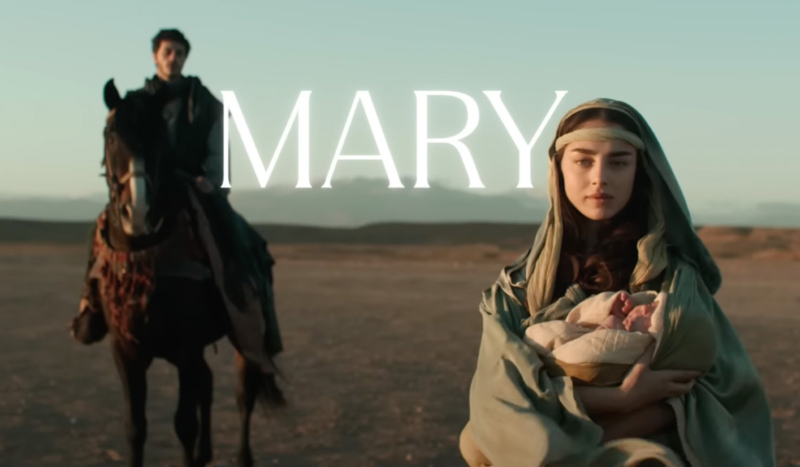
Netflix video screengrab / YouTube
CV NEWS FEED // In a recent analysis for Angelus News, Catholic author and commentator Amy Welborn critiqued Netflix’s upcoming film, “Mary,” which focuses on her struggles following the miraculous conception of Jesus amid the threat posed by King Herod.
Set to stream beginning Dec. 6, the film has been described as a “survival thriller,” emphasizing Mary’s courage as she and Joseph flee to protect their newborn child.
According to Welborn, the film creators have claimed that their goal is to authentically “tell the story” of Mary, as suggested by her voiceover in the opening scene, where Mary says “…you may think you know my story… trust me… you don’t.”
“Well, apparently not,” Welborn wrote, “especially if Mary’s story is a highly selective mashup of the Gospels, the noncanonical ‘Protoevangelium of James,’ that survival thriller, and a Joel Osteen sermon.”
Welborn noted that the film, after being developed for over a decade, presents significant departures from the biblical accounts, particularly in its portrayal of key events.
She raised concerns about historical accuracy and how the film rearranges the chronology of crucial moments in Mary’s story, such as the Annunciation and the Presentation of Jesus. Additionally, the film suggests that Joachim, Mary’s father, is murdered by Herod’s forces, a narrative not found in Scripture.
Another deviation occurs when the film presents Mary and Joseph heading to Jerusalem shortly after Jesus’ birth, despite the Gospels indicating that they initially fled to Egypt to escape Herod’s massacre of infants.
When asked if altering the biblical chronology in the story “really matters,” Welborn strongly affirmed that it does.
“Yes it does,” she wrote, “especially when, no matter how well intentioned, you are presenting your work as the ‘story’ that the rest of us never knew before.”
These changes diminish the broader context of salvation history and the suffering of Israel, reducing Mary’s character to one of personal struggle rather than her essential role in the Christian faith, according to Welborn.
Perhaps most controversially, Welborn notes a scene where Joseph kills one of Herod’s men while defending Mary and Jesus.
“Pause, reverse, rewatch: Joseph kills a guy,” wrote Welborn.
Welborn acknowledged that while Mary does not solely rely on herself in this “survival thriller,” there is something troubling about the film’s portrayal of her dependence on God.
Mary’s response to Gabriel highlights a self-centered trust in the phrase “Let it be me,” contrasting with the traditional fiat, or “let it be.” This shift moves away from the deeper spirituality rooted in Mary’s historical faith, revealing that Mary’s “trust” is based on “a vague self-empowering promise, a spiritually selective, self-referential framework.”
Welborn remarked, “What a difference one word makes.”

